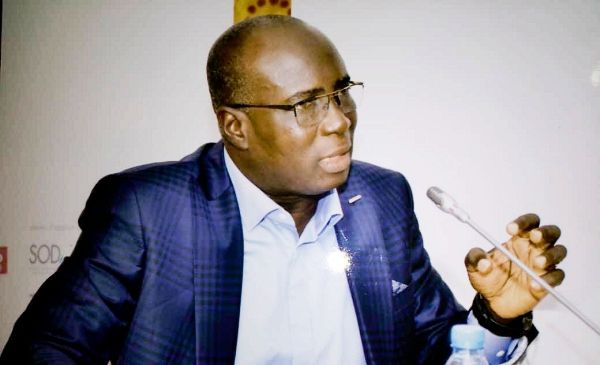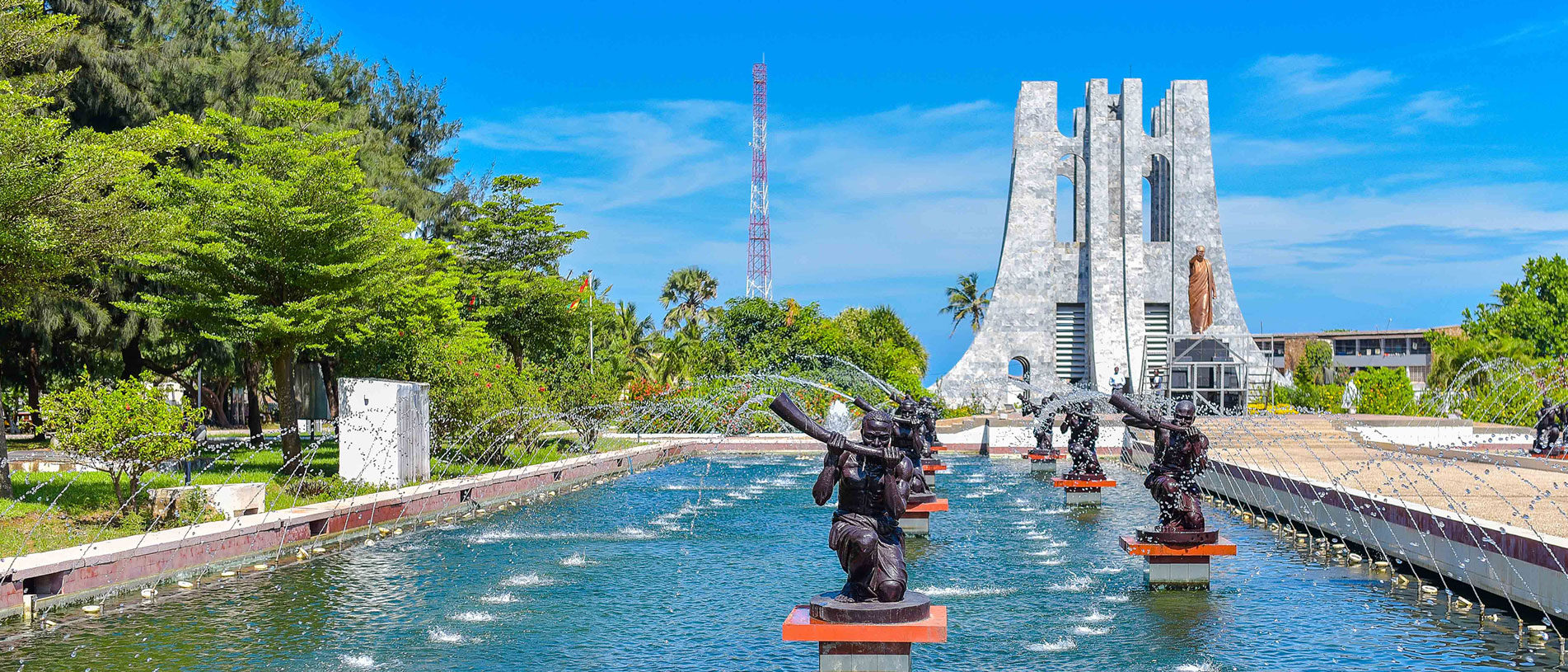Anglican Church set to kick-start royalties payment

An entrepreneur and Executive Chairman of the Dara Salaam Group, Alhaji Yusif Ibrahim, says he has long forgiven former President Jerry John Rawlings under whose administration his $5 million hotel was demolished.
Speaking about the issue publicly for the first time in nearly 20 years in an interview on the Good Evening Ghana, a television show which was played at the launch of his autobiography, the business magnate stated that he had forgiven the former President for his wrongs against him.
“I’m not angry with Rawlings. I’m never angry with anybody. I know that whatever happens to me is determined by God, or God says it will happen. So I don’t have anything against Rawlings. I’ve no choice but to forgive him; the Quran says we should forgive and forget,” he stated.
Book launch
The entrepreneur launched his 200-page autobiography, entitled Paradise is unpaved, at the Marriott Hotel in Accra last Saturday.
The book also gives an insight into how he strived with nothing from Kumasi Zongo, earning him the nickname, “Zongo Boy,” to become a multi-sectoral businessman.
Demolition
On Monday, April 12, 1999, while on a routine early morning walk, Alhaji Ibrahim received the disturbing news that his almost-completed ultramodern hotel, furnished and fitted with air conditioners, television sets, refrigerators, among other valuables, was being razed to the ground by some military men based on the suspicion that Alhaji was in bed with Sir Sam Jonah, considered as an “enemy of the state” at the time.
Alhaji Ibrahim later took the matter to court and was subsequently awarded a GH¢6.13 million judgement debt which was paid by the Prof. J. E. A. Mills administration in 2009.
Persuasion
Alhaji Ibrahim stated that he was persuaded by friends and family to publish the book for posterity.
He added that the book was also to give hope to the teeming youth from the Zongo communities whose background should never be a hindrance to the heights that they could attain.
He stressed that “Paradise is not paved. It is full of potholes but with determination and resolution you can definitely achieve whatever you want.”
Chapters
The autobiography has been structured into eight chapters, with each chapter talking about a specific incident that occurred during the Zongo Boy’s journey to the top of the food chain.
The chapters are Kumasi Zongo Childhood; Education; Entrepreneurship Journey; My Journey and Politics; Business Lessons; Philanthropy; Honours, and Personal Life.
Chapter Four of the book “My Journey and Politics” has a sub-heading “The Pier Hotel”, which gives readers a vivid account of how Alhaji’s Pier Hotel was demolished allegedly on the orders of the then President Rawlings.
Tributes
While reviewing some portions of the autobiography, an economist and friend of the author, Mr Kwame Pianim, paid glowing tribute to Alhaji Ibrahim, describing him as a man whose friendship transcended tribe, religion and politics.
Mr Pianim, while touching on the Pier Hotel Saga, said: “Even though they preach that the private sector is the engine of growth, most of our governments are more disruptive of the private sector than they have been creators of the private sector and we are hoping that we learn from the past.”
A former Council of State member, Nana Prah Agyinsaim, Professor S. N. Wood, Dr Kwame Amuah, Dr Sam Jonah and Lawyer Tsatsu Tsikata all eulogised Alhaji Ibrahim, describing him as a good friend who stood beside his friends at the expense of his family and business.
Dignitaries
Some of the guests who graced the event included former Chief of Staff, Mr Kwadwo Mpianim; a former Finance Minister, Professor Kwesi Botchwey; a former Minister of Works and Housing, Mr Collins Dauda; the Minister of Zongo Development and Inner Cities, Dr Mustapha Hamid, and the family of Alhaji Ibrahim.
Others were the Senior Minister, Mr Yaw Osafo-Maafo; son of Africa’s richest man Aliko Dangote, Mr Mohammed Sanni Dangote, and a former Finance Minister, Mr Kwame Peprah.
The General Manager (GM) of the Ghana Music Rights Organisation (GHAMRO), Mr Jonathan Cudjoe, has stated that his outfit and the Accra Diocese of the Anglican Church have come to an agreement on a series of negotiations to arrive at a specific amount to be paid as royalty by churches per annum.
That, he said, would set the tone for other churches to follow suit in accordance with the Copyright Act 2005, Act 690.
Section 37 (1) of the Act states: “Where in any public place by means of broadcasting, cinematography, jukebox, or other apparatus, a sound recording or audio visual work is used, the authorized performer and producer of the sound recording or audio visual work shall be entitled to royalty in accordance with this Act.”
“We have engaged the Anglican Church and we have agreed and negotiated on the fee to be paid every year,” Mr Cudjoe said.
In an interview with the GRAPHIC BUSINESS on March 1, 2019 in Accra, Mr Cudjoe added that they were impressed by the church’s commitment and willingness to fulfil its responsibility with regard to the law.
He explained that the payment would be based on the number of churches under the dioceses, and due to this, they had created categories for each diocese which would determine the fee they were entitled to pay.
Mr Cudjoe further stated that the role of GHAMRO was to license, collect and distribute royalties to right owners for the use of their work anywhere it was used in public and they would stand by that all the time.
He added that non-payment of copyright royalties by churches denied many right owners access to revenue from the use of their work, hence the need to collect those royalties.
“We realise that if we leave out churches which are public places, we are denying a vast majority of our right owners’ revenue for the use of their work,” he said.
Challenges
The officer at GHAMRO in charge of collection of church royalties, Mr Obed Aryeh, underscored challenges GHAMRO faced with regard to collection of royalties.
He said dealing with the umbrella bodies of which the various churches fall under was a major challenge.
According to him, going after the numerous churches individually was a really hectic task.
Citing the charismatic churches for instance, he said: “For the charismatic churches, it has been a challenge because we are not able to deal with the main group and if we are not able to do that then we have to come to individual churches and that has been a great challenge.
It is easier to deal with the head,” he said.
He stated that their work would be easy if they were able to get the council that supervised the churches to make the collection flexible.
He added that one of the challenges had to do with the understanding of the copyright laws.
According to Mr Aryeh, many people do not really understand the concept of the Copyright Law and, therefore, they do not see the need to pay.
He, however, reiterated GHAMRO’s mandate to educate people on payment of copyright royalties and the general concept of copyright.
SOURCE: GRAPHIC.COM.GH




